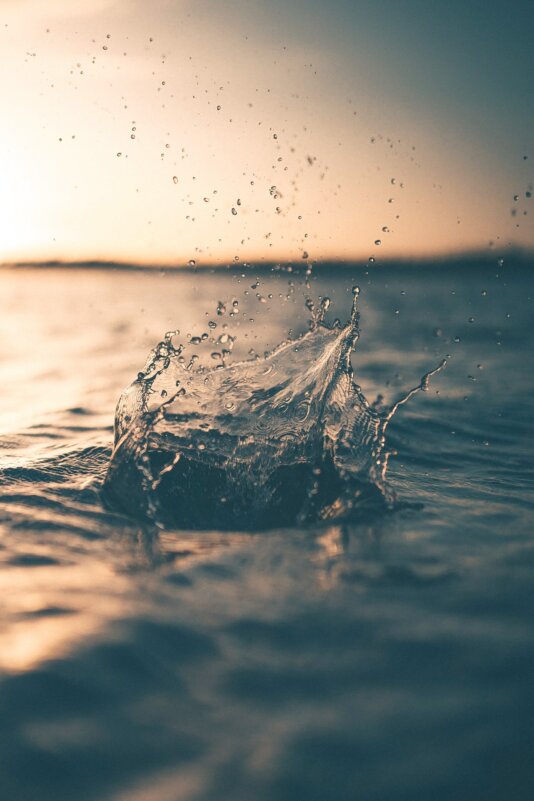- About
- Topics
- Story
- In-Depth
- Picks
- Opinion
- News
- Donate
- Signup for our newsletterOur Editors' Best Picks.Send
Read, Debate: Engage.
| May 12, 2022 | |
|---|---|
| topic: | Indigenous people |
| tags: | #World Water Forum, #Africa, #water, #water grabing, #indigenous people |
| located: | Senegal |
| by: | Bob Koigi |
Dakar, Senegal hosted the World Water Forum (the largest international water-related event) in March - marking the first time the forum was held in Sub Saharan Africa. Over the course of six days, emotive issues like water grabbing and rights of indigenous communities featured prominently as delegates, among them governments, private sector players, multinationals, activists and communities, reflected on the nexus between water scarcity, land use and global trade.
The forum took place as concerns continue to grow over the increasing appetite for developed countries, multinationals and corporations to acquire fertile land and, by extension, the water in it. The rush by international corporations to tap into these resources - from River Nile, the largest in Africa, to Western Africa’s prime water source Niger River, which serves over 100 million across Guinea, Mali and Niger - has raised concerns over the rights of local communities and their access to the waters.
Indeed, studies have pointed to water being one of the key drivers informing the global craze for land acquisition.
Water grabbing by corporations is estimated to add up to 454 billion cubic meters annually worldwide, representing approximately 5 percent of the water the world uses each year. China, India, Saudi Arabia and the United Arab Emirates are among the countries noted to have made major investments in expansive agricultural projects in Africa that consume plenty of water.
"Beyond the state, a whole array of different actors, both old and new, are involved in the global water grab. These include specialised water-targeted investment funds that seek to profit from the monetisation of water and its transformation into an economic asset gaining in scarcity value," reads a 2014 report titled The Global Water Grab: A Primer. "It also encompasses a whole host of transnational corporations, including large private water companies, agribusinesses and the extractive industries," the report further reads.
The narrative advanced by the multinationals, particularly those in the farming sector, is that African water resources remain heavily under-utilised and should be tapped for export-oriented agricultural activities.
"Water grabbing also involves all those actors whose activities and profits depend on the trade in 'virtual water'. The 'virtual water' concept is used to measure the amount of water that is 'embedded' within the production, processing and trade of commodities," the 2014 report reads. "It is estimated for example that 1000 litres of virtual water are required to produce one kilogram of wheat while as much as 15,000 litres of virtual water are used to produce one kilogram of beef in Europe or America with soy imported from developing countries."
Yet, the reality on the ground indicates that Africa remains one of the most water-stressed continents, with climate change exacerbating an already dire situation. At the moment, one out of three Africans face water scarcity and 400 million people in Sub-Saharan Africa lack access to basic drinking water.
"The obsession with land acquisition is heavily pegged on free water, and African governments have been quick to offer these incentives at the expense of local communities and their needs," Michael Mutwiri, a water activist, told FairPlanet. "Traditionally, water resources have been a support system for pastoralists, farmers and rural communities in general. Displacing them has been a recipe for chaos, and with the impending water scarcity this can only get worse."
Our Water Our Right Africa Coalition, OWORAC, an umbrella activist body drawing members from Nigeria and other African countries, has been condemning the attempt by water privatizers to commodify African water, deeming it the biggest threat to universal water access and rights.
The coalition has been running a series of initiatives to stop what they call ‘the new face of colonialism’, while advocating for public water systems that are well-equipped and funded as the silver bullet to promoting affordability, availability and accessibility of safe water in Africa. They also advocate for activists to be involved in decision making platforms.
Their sentiments are echoed by The Global Water Grab: A Primer report, which notes: "Decision making power within the various international policy-making forums and bodies dealing with water governance is, for instance, increasingly dominated by the corporate sector at the expense of civil society voices."
"In the end, African governments have to strike a balance between upholding the rights of local communities to access clean water and the interests of bilateral partners and international organisations to invest in their respective countries," said Mutwiri. "The rate at which various African countries are becoming water-stressed could only spell danger if these issues are not addressed. Communities that have long benefitted from these resources must be allowed to continue doing so."
Image by IWMI
By copying the embed code below, you agree to adhere to our republishing guidelines.

